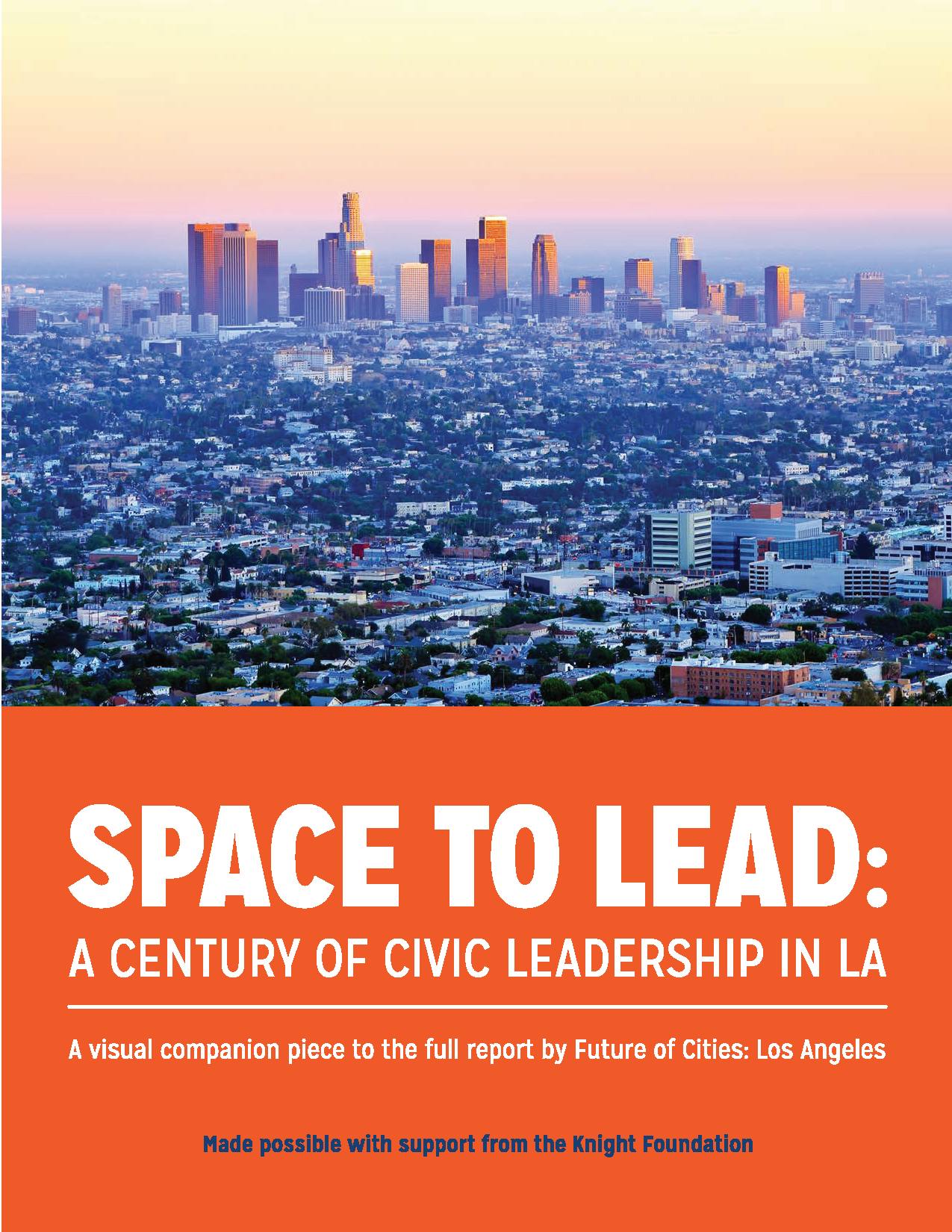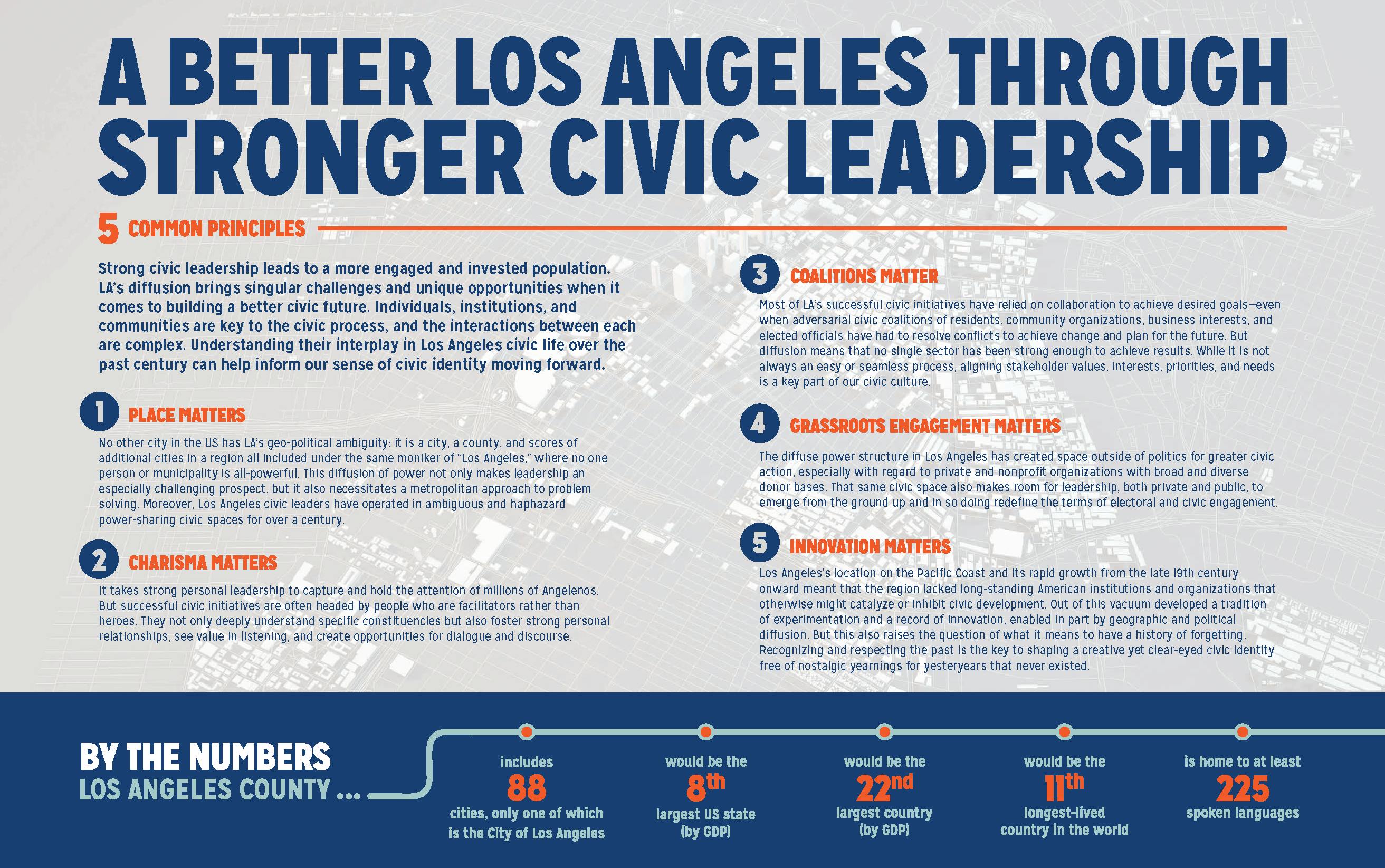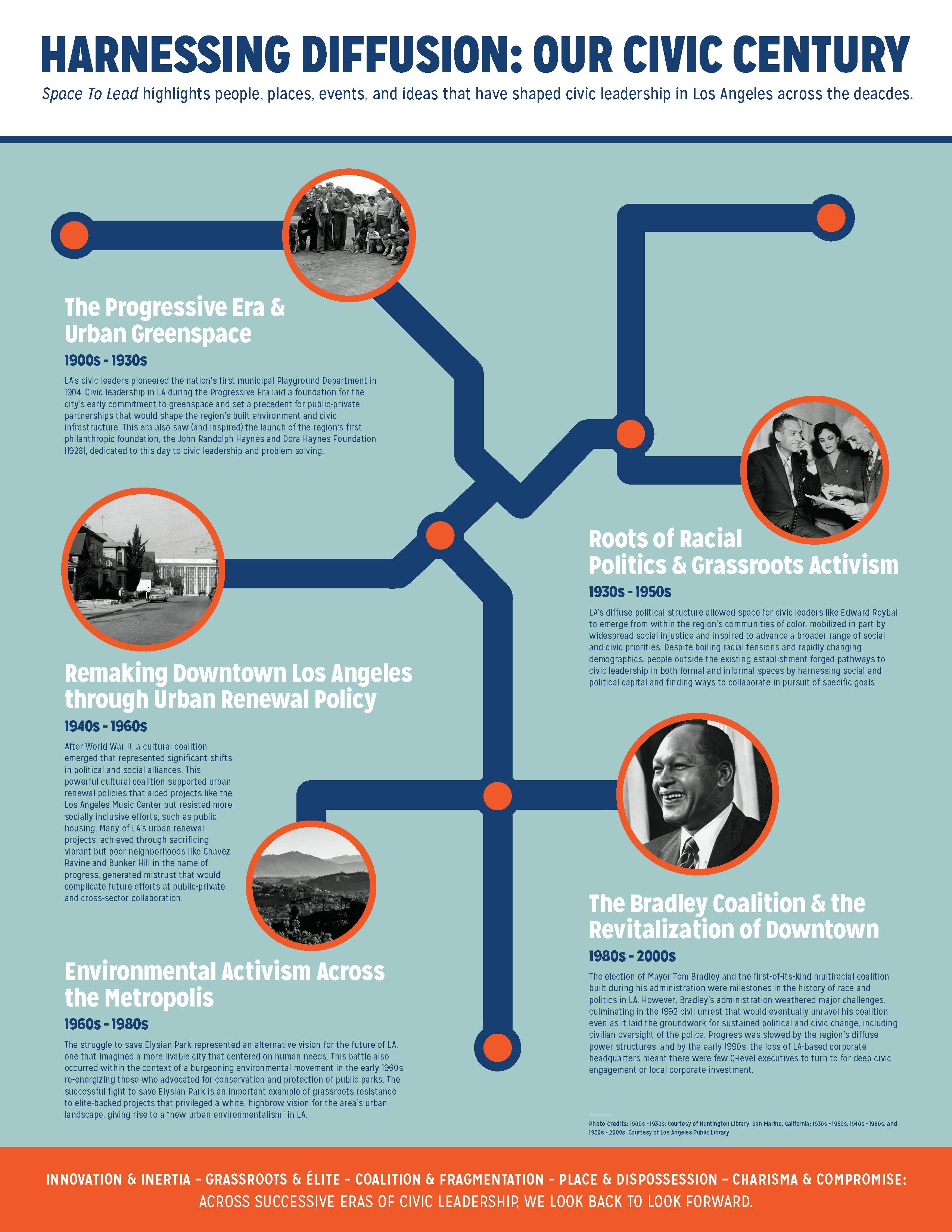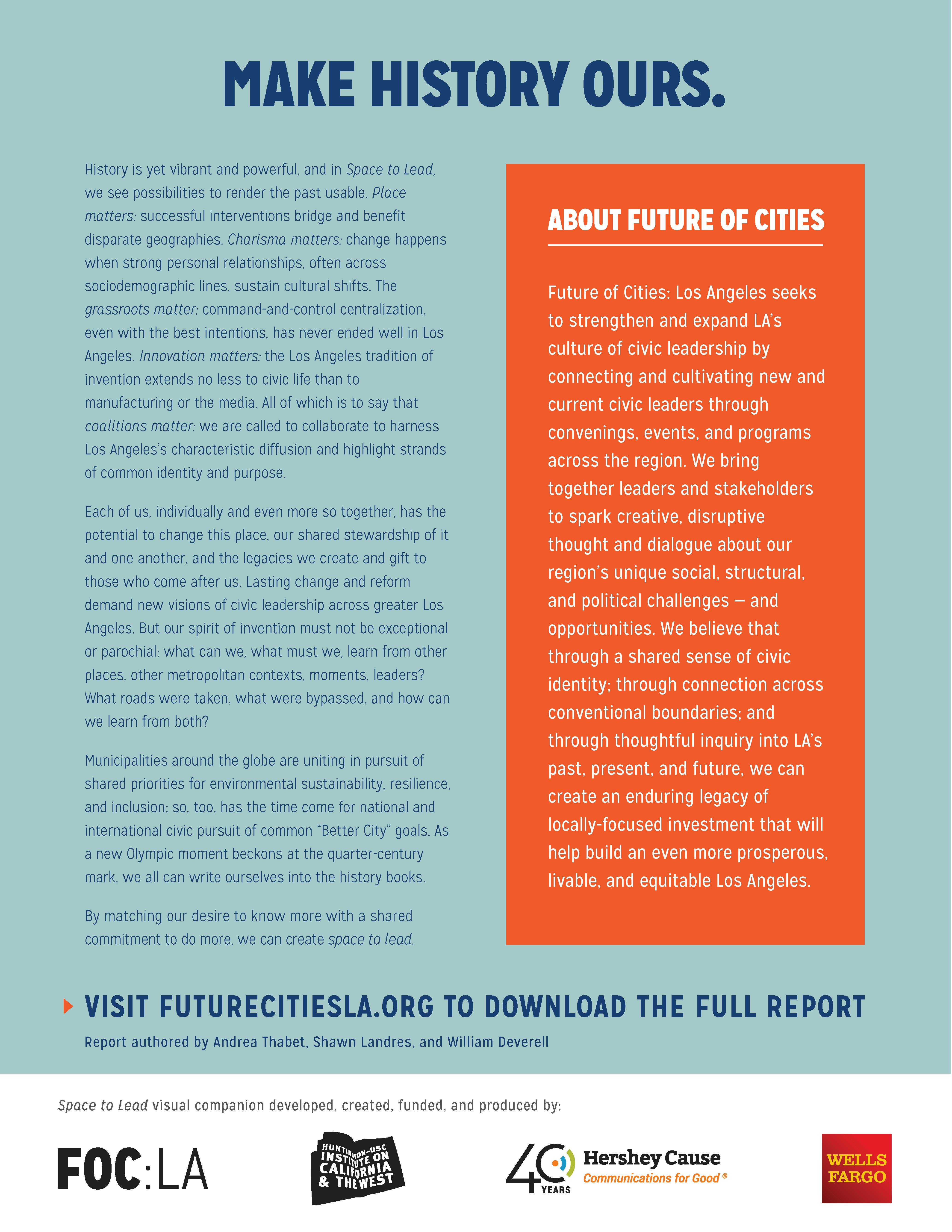Space To Lead: The New Report by Future of Cities
Future of Cities: Los Angeles is proud of commissioning of Space to Lead, with a grant from the Knight Foundation. Space to Lead is a report by three elite scholars of Los Angeles history who explore the formulae that grassroots activists and civic leaders have used throughout LA history to fix the city’s problems and address its inequities. The authors tell the inspiring stories of LA’s heroes: Great leaders like Edward Roybal and Tom Bradley, and decisive dramas like the launch of urban parks, the ecology movement and the hard-won coalitions that created the downtown LA we know today.
Click on the links below to download your free copy of the report and the summary.
Our scholars -- historian Andrea Thabet, Ph.D. of UC Santa Barbara, with assistance from William Deverell, Ph.D., director of the Huntington-USC Institute on California and the West and Shawn Landres Ph.D. fellow at the UCLA Luskin School of Public Affairs -- shows how activists of Los Angeles’ past used methods that remain relevant today. Their key findings:
• Place matters. Los Angeles’ size and diffusion of governmental power creates a unique situation for activists not replicated anywhere else in the world.
• Charisma matters. Leaders who seek to change Los Angeles need to be strong, exemplary characters, but they also need to be facilitators who value dialogue across silos and sectors.
• Coalitions matter. Los Angeles works when sometime adversaries can come together and collaborate on specific goals. A process of negotiation among residents, business, community organizations and elected officials often precedes united action.
• Grassroots engagement matters. Los Angeles’ diffuse power structure creates “space to lead,” meaning opportunities for unexpected leadership and coalitions to emerge and gain game-changing influence over the civic dialogue.
• Innovation matters. Los Angeles’ unique position in the American landscape as a late-forming city unbound by the traditions of the Northeast, Midwest and Deep South has made the city a friendly habitat for experimentation. But sometimes that innovative spirit needs to be disciplined and shaped by a greater appreciation of LA history.

Anyone who seeks to address contemporary LA problems such as homelessness, transportation gridlock or education reform would benefit from reading Space to Lead. FOC:LA is sharing this report with independent high schools in greater LA for incorporation into the curriculum, because we believe by studying the past, students will learn how to be effective in overcoming Los Angeles’ diffused, decentralized structure to fight for change.
If you are a teacher or principal who would like to work with FOC:LA to incorporate our report into your history and social studies curricula, please contact us at [email protected].



